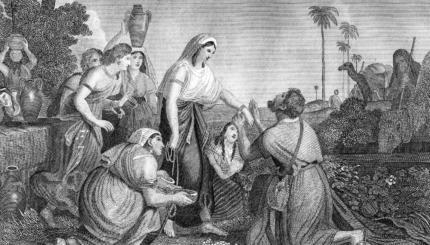I know some middle-schoolers who are really outstanding, kind, and compassionate kids. Some of them have been through some very difficult challenges in which they were physically at risk. Chatting around the dinner table last week, they said they wanted to befriend the outliers – the friendless kids in their schools. Why? So if any of the outcast kids snapped and started shooting, they, as friends of the shooter, would have a better chance of survival. Not to help the “potential shooter” feel seen or included or cared about. Not even to be better able to get the kid help. For these kids, it was all about self-preservation. And if that isn’t chilling, I don’t know what is.
I’m not shocked that these young teens shared these ideas. Quite the contrary, since so many of our young people have been traumatized to various degrees by physical insecurity. But I am aching because they are so gut-scared that they are looking for any “reasonable” avenue for survival in their school – and that at this point they are actually expecting a shooting. And as they wait for the shoe to drop they feel unprotected in their school or in their society. No child should ever even have to consider this.
Like so many of the communities whose children have suffered gun violence, these kids are in a rural, peaceable area. The kind of place people go to get away from violent situations – as did a family I know from Sandy Hook who moved there, just a year before the shooting, in order to ensure their children’s security.
When the inevitable next shooting occurs, we look into our children’s eyes and try not to show our feeling of helplessness. Maybe we role model (for them and ourselves) the ability to protest and vote.
But we are probably not accustomed to being this vulnerable though, certainly, generations before us shared this helplessness with their children – and we see today it in conflicts the world over.
The difference, though, between the atrocities of the Pogroms and the Nazis and the current Syrian nightmare, and all the others, is that those are situations of outright government-sanctioned war and violence. But this… this is springing up in our own communities. Grievously, it can appear to be, if not government sanctioned, then government permitted. I am not sure if it is the extent of the loss or the motivation of the bearer of the weapon that tips the scale. Either way, there is incalculable suffering damage to the psyches of all, as well as the way we understand the concept of a social contract and our power to influence it.
And so, I don’t think the “gun issue” is really about guns. Nor is it just a civil rights issue, or a second amendment issue. And the uprising and protests after school shootings aren’t “simply” about protecting our children’s sacred lives against the incapacity, unwillingness, or ignorance of those who make these tragedies possible.
This, in my eyes, is a matter of the extent to which our society is willing to let our children bear the consequences of our inability to navigate our differences and create a sane, responsible, respectful and loving society in which trust can slowly be restored. But this cannot occur while people feel at-risk for their present and future safety nor when their fellow human beings are unwilling to hear and respond to ideas and realities beyond their own experiences.
We read in the Torah and other texts in our tradition that we are responsible to teach our children the ways of Torah, and that come what may, there is no sliding scale for ethical behavior – perhaps especially when such a scale is invoked to enshrine what is perceived as a personal benefit. In our texts, for the most part, those whose irresponsible incitement bring destruction on others, and all who willingly join in the unethical foment, pay for sins committed. Like Korach who challenged Moses’ right to lead the people to the promised land. Like Pharaoh and the Egyptians who made others suffer in order to aggrandize themselves. Like the Israelites who gave their gold to create the idol they worshipped. Like anyone who harmed the vulnerable.
Yet, of all the adversaries whose crimes are related in Torah, who do we most disparage? We vilify Amalek who attacked the defenseless. The children. And we are commanded to bring an end to Amalek and his descendants. As troubling as this commandment may be, we can see the wisdom of ending horrific attacks on the most vulnerable in our society. But we also have to take responsibility, because history teaches us that when we leave the most vulnerable members of our society unprotected, they will suffer.
As in the story of Amalek’s unexpected attack, it seems we have no idea beforehand of who is going to “snap.” Nor do we know who our terrified children, whose insecurity grows with every shooting and every “active shooter” drill, will befriend – or the long-term effects of this cultural emotional and spiritual crisis.
What are we teaching our children when they feel they have to demonstrate courage that most of the adults they are attempting to school cannot seem to muster, even as some work to legally accommodate those who clearly pose threats? What are we saying when we congratulate them for their efforts, rather standing with them in our own communities? What are we saying when we are not completely ashamed that they needed to step into this position?
We are commanded to be a light to the nations. How can we gird ourselves with the wisdom of our tradition to fearlessly pursue justice, seek peace, and pour forth that light in this dark time?




